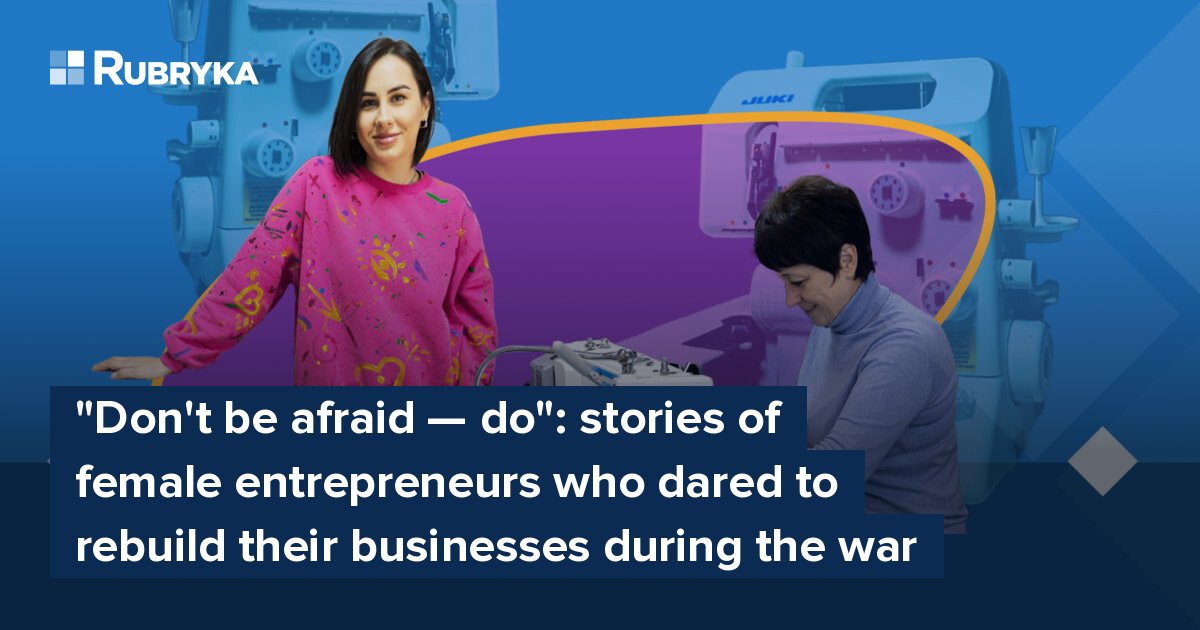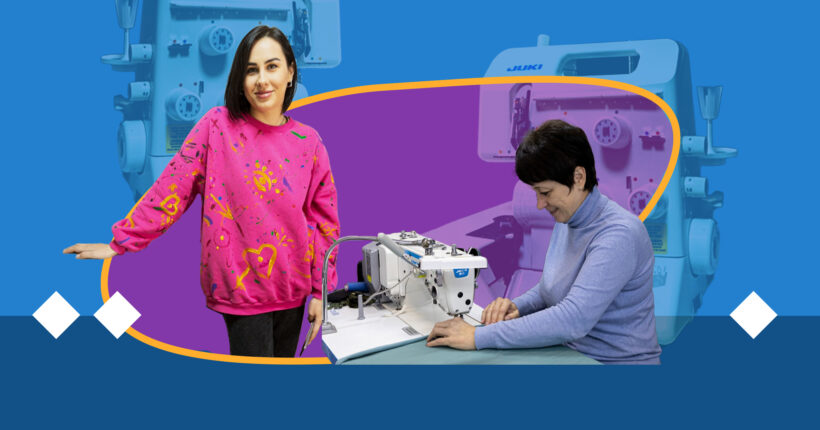
Today, women are one of the driving forces of Ukrainian reconstruction and recovery. International partners also see this — in particular, the British Embassy in Ukraine launched the Women in Recovery campaign to emphasize the role of Ukrainian women in the country's reconstruction — infrastructural, social, and economic.
Ukrainian entrepreneurs are female titans who, despite all the difficulties, continue to run their businesses and support the country economically. When you start your own business, you calculate the most minor risks. However, it is impossible to take into account the war. Having come face to face with it in the occupied or front-line territories, you have to solve completely different problems than those for which you were prepared and face the greatest fears and challenges. Rubryka spoke to three female entrepreneurs who, despite everything, found the strength to resume their business.
What is the problem?
90% of female entrepreneurs noted that the war in Ukraine affected their business. Moving to an unknown city, trying to get back on your feet and financially support yourself, and fear for your family and employees are just some of the factors that business owners face.
They often feel confused and lonely and need both psychological and financial support to return to their own business.
What is the solution?
Ukrainian women actively participate in the reconstruction and restoration of Ukraine, and their businesses contribute to its economy and development. The equal involvement of women in recovery improves Ukraine's prospects.
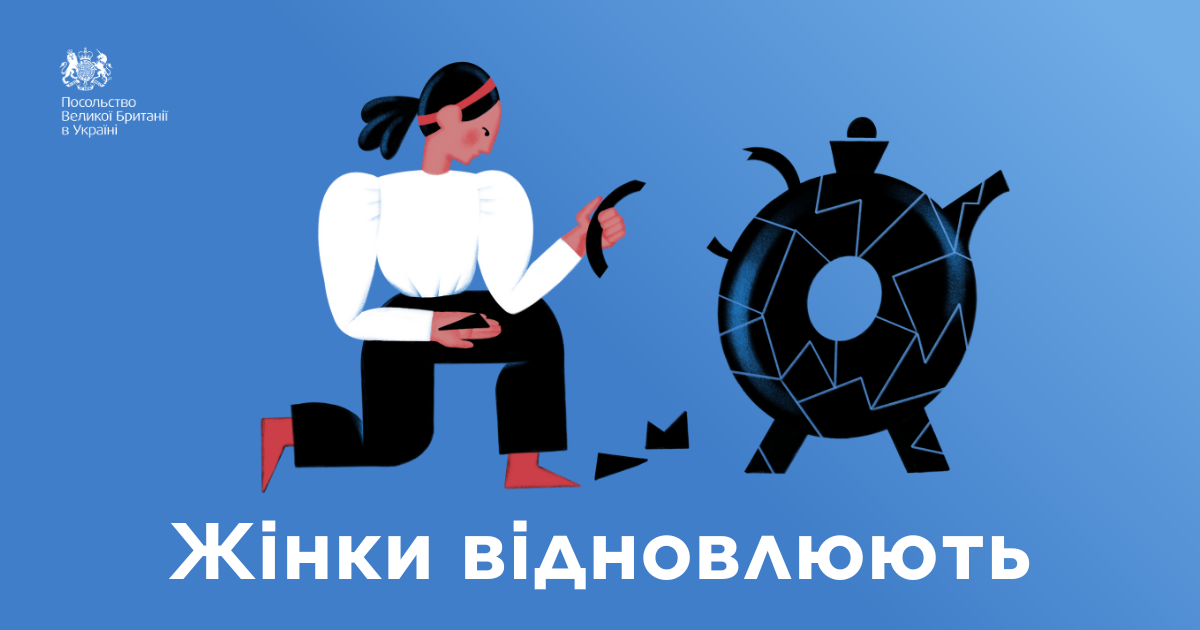
Women in Recovery is a campaign of the British Embassy in Ukraine aimed at drawing attention to the role of women in reconstruction.
VONA hub is a career and business hub that helps women who are experiencing or have experienced challenging life circumstances to restore their businesses. Here, specialists provide the necessary support, professional training, and business development and recovery consultations. Thanks to the support of the project donor — the government of Great Britain — Ukrainian women who were forced to leave their homes because of the war receive support and the necessary skills to restore or start their own businesses. Let it be in a new place with a challenging experience but with a strong desire to move forward.
How does it work?
"When people evacuated, they took my toys with them"
Berdyansk is a resort town in the Zaporizhzhia region. Every summer, it used to welcome hundreds of thousands of guests with the scorching sun and waters of the Sea of Azov until the winter of 2022, when the Russian military occupied the city. Most residents left, looking for a safe place, Olena Hrabovenko becoming one of them. She and her husband and ten-month-old child moved from Berdyansk to Dnipro to live with relatives.
"We left Berdyansk due to the occupation in April. It was a tough decision. It was scary to dare, and we didn't know how to survive the road. Nearby, you could hear daily shelling of Mariupol," Hrabovenko recalls.
In her hometown, the entrepreneur had her own business of tailoring pillow toys to order, which will turn six years old in December.
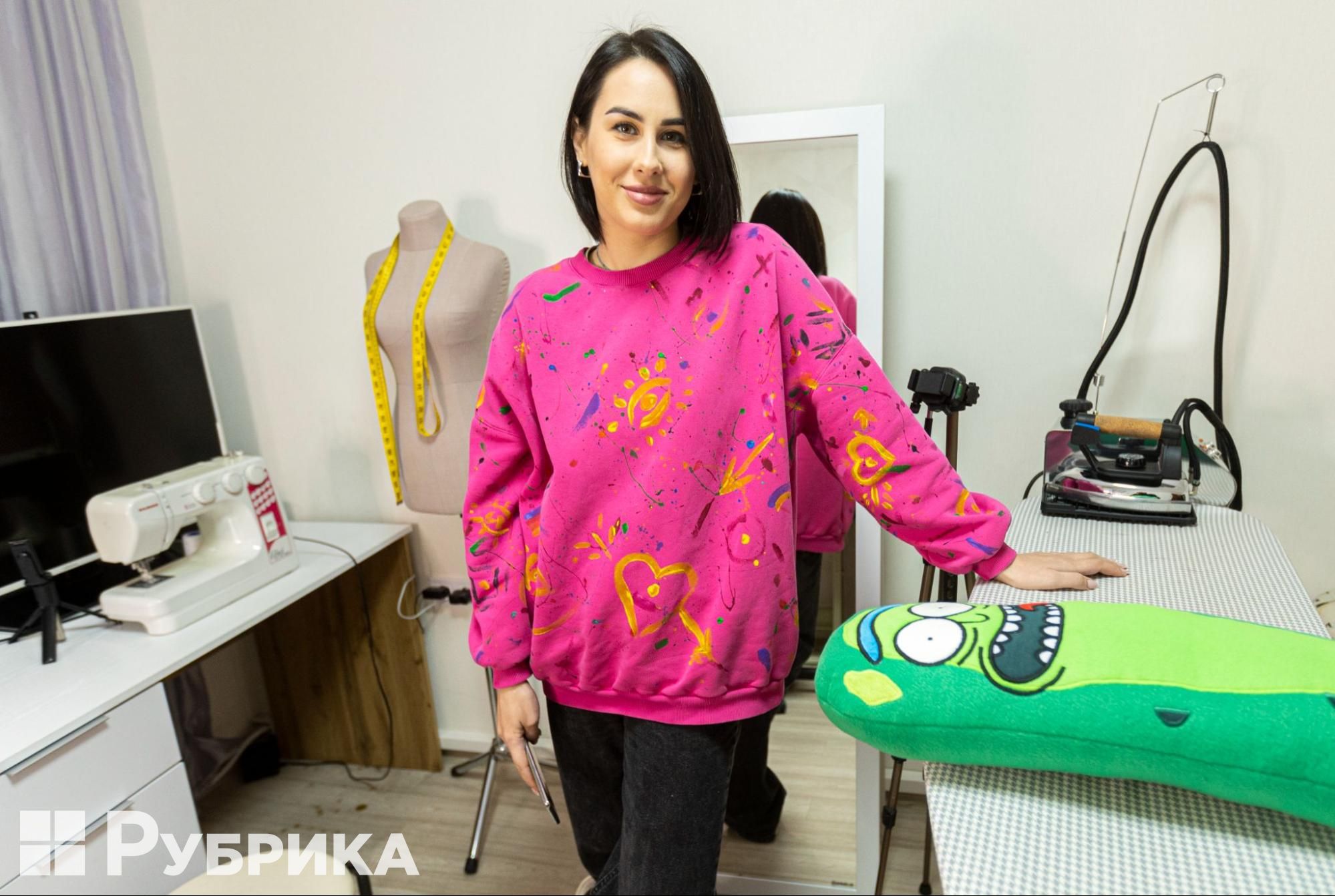
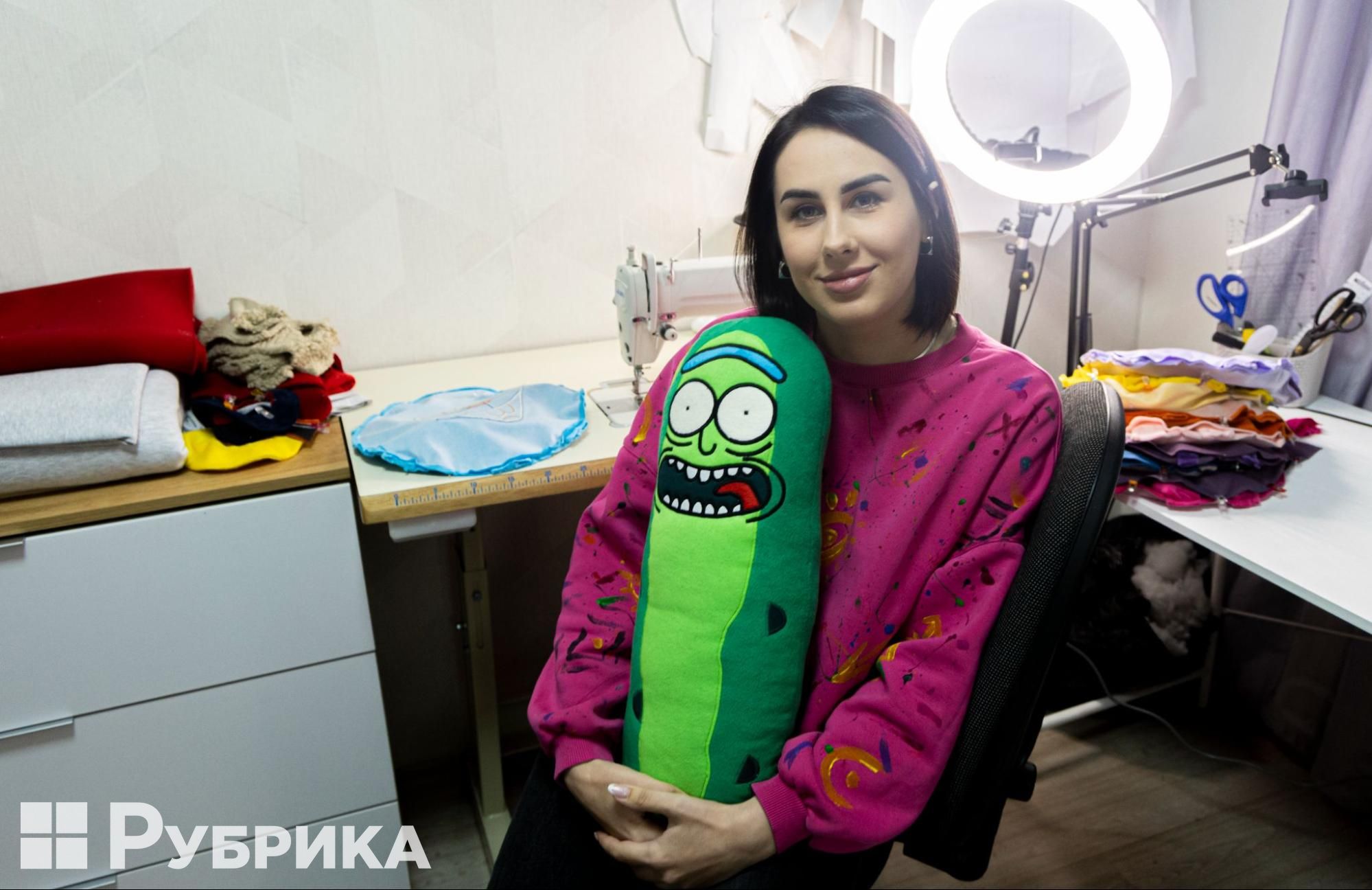
Olena Hrabovenko with her toys. Photo: Rubryka
"I had an assortment of more than a hundred cool toys and many customers. It all started when my dad gave me ₴500 for the New Year, and I sewed one copy. That's how I started my business by sewing characters from various cartoons," says the entrepreneur.
Hrabovenko shares that in six years, there has been no negative feedback. When there is an individual order, the craftswoman asks about the desired material, size, texture, and how the client wants it to be. The clients often trusted Hrabovenko with their choices, which worked well for the artist.
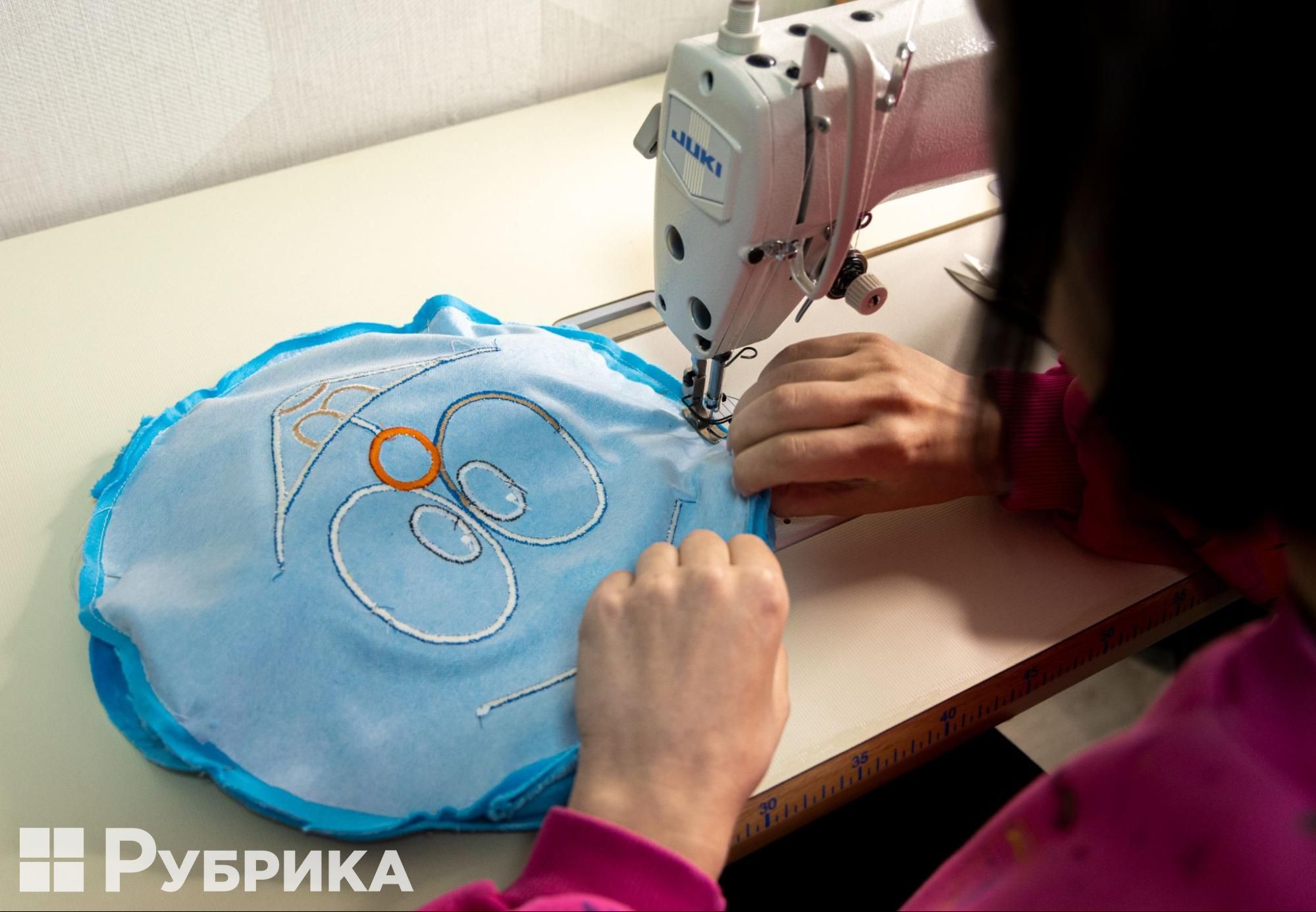
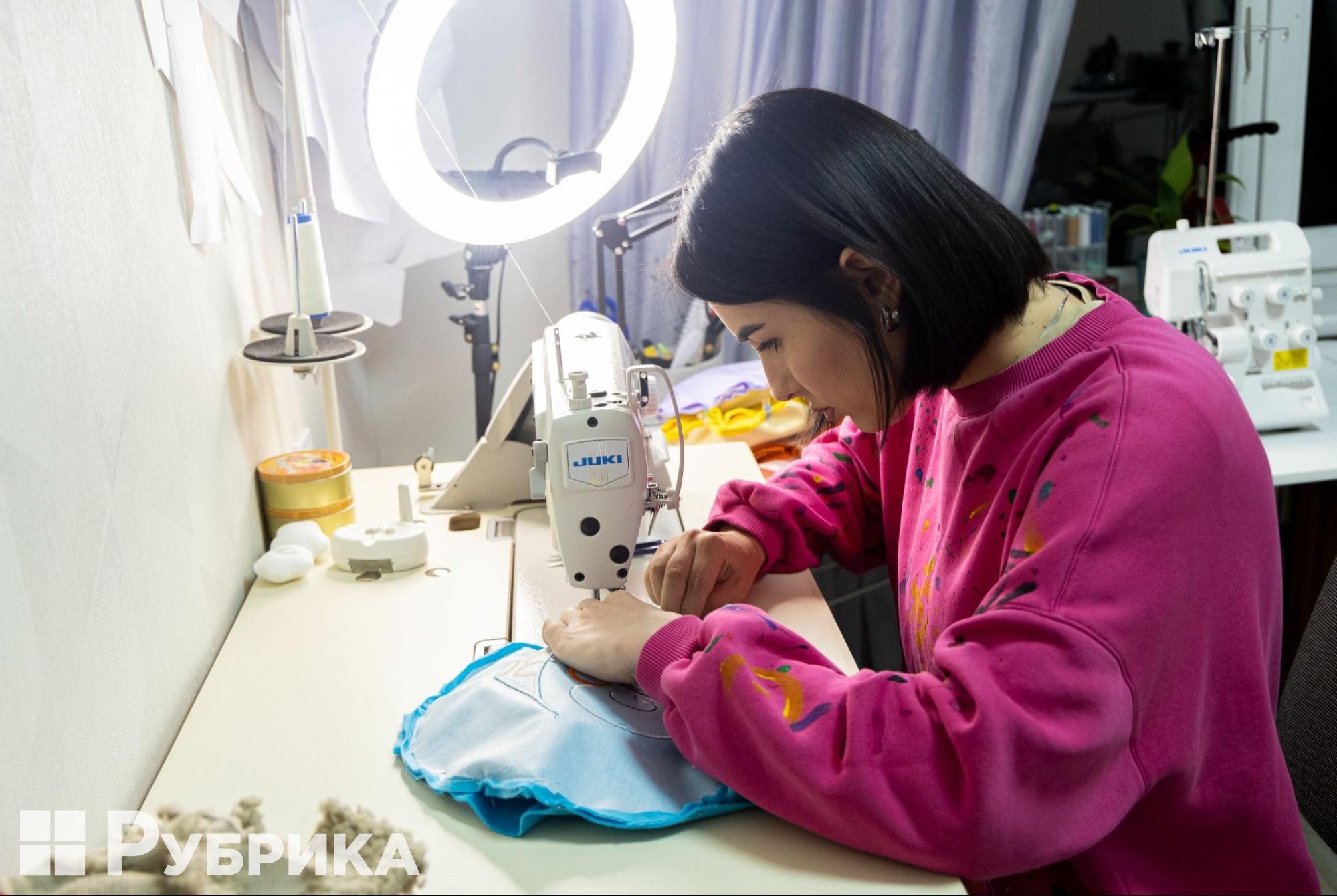
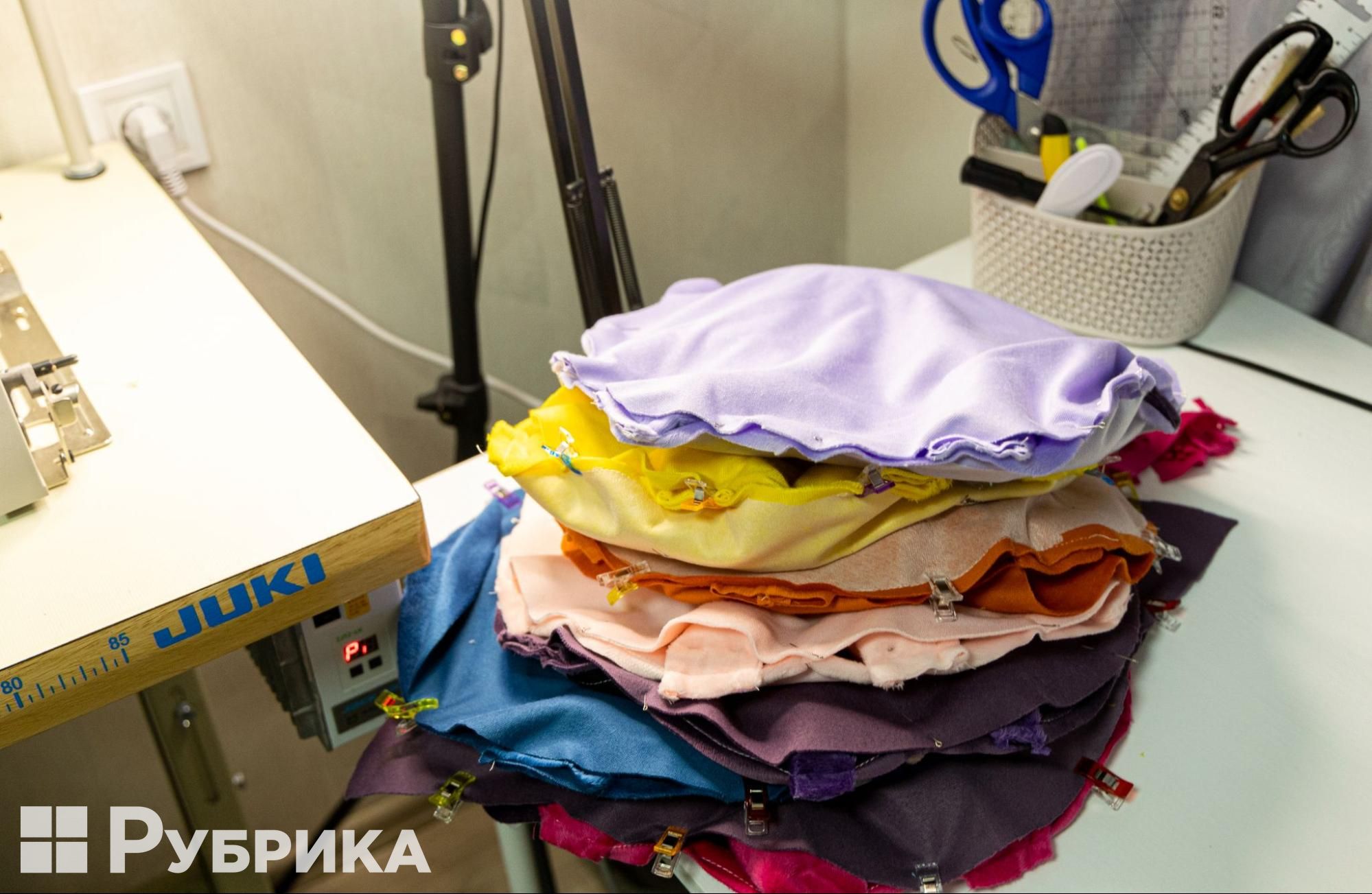
Hrabovenko is working on pillow toys. Photo: Rubryka
When the full-scale invasion began, the craftswoman lost the desire to sew because of uncertainty about the future. She hadn't touched a sewing machine for about half a year, but on New Year's Eve, decided to resume work and start sewing gifts.
The fact that Hrabovenko felt the demand for her products contributed to this. The entrepreneur received orders even when she and her family were under Russian occupation. "I was very surprised that now someone needs toys," Hrabovenko admits and continues: "I took two sewing machines out of the occupied house. I took a loan to buy one of them two days before the invasion. I didn't want to leave it there because it's an overlock, a unique sewing machine that gives you very professional-looking stitches, which I've been dreaming about for a long time."
In the spring, Hrabovenko launched her sewing lifestyle blog, telling her subscribers about her dream and inspiring them: "This is the time to do it because there will be no better time. I am gathering a small community. We already have our own jokes, memes, and a cool connection."
The entrepreneur says she made this decision because she was lonely after moving and wanted to share her path with someone. At the same time, Hrabovenko understood it was necessary to start talking about her work because people used to think that a full-fledged team of seamstresses was behind the toys.
Once, Hrabovenko's psychotherapist sent her the news about a meeting at the VONA hub, and the entrepreneur dared to come, although she had never attended such events before.
"I came to the hub and saw a cool sewing movement there. I already go there as if to work. Hub inspired me because ambitious women with powerful motivation and cool ideas come there. Everyone wants something, and it's great to be where there are like-minded people," Hrabovenko shared with Rubryka.
The entrepreneur shares a phrase she heard at the event from Olena Kucheruk, the head of the career hub, which has become her slogan: "it's time to make a statement."
"I'm always in the shadows; I'm doing something, but I don't show myself, and I don't declare that it's me. Kucheruk showed me the right direction and what to do with it," the entrepreneur recalls.
The meetings at the VONA hub inspired and motivated Hrabovenko to apply for micro-grant pitching. This is how she was able to get the funds to purchase the necessary equipment for sewing and blogging:
"Pitching was my first public performance; I was very nervous. Three or four days later, I was informed that I and two other girls had received a grant. It greatly strengthened my motivation, and I saw that this is not a fantasy — ayuthing can be done."
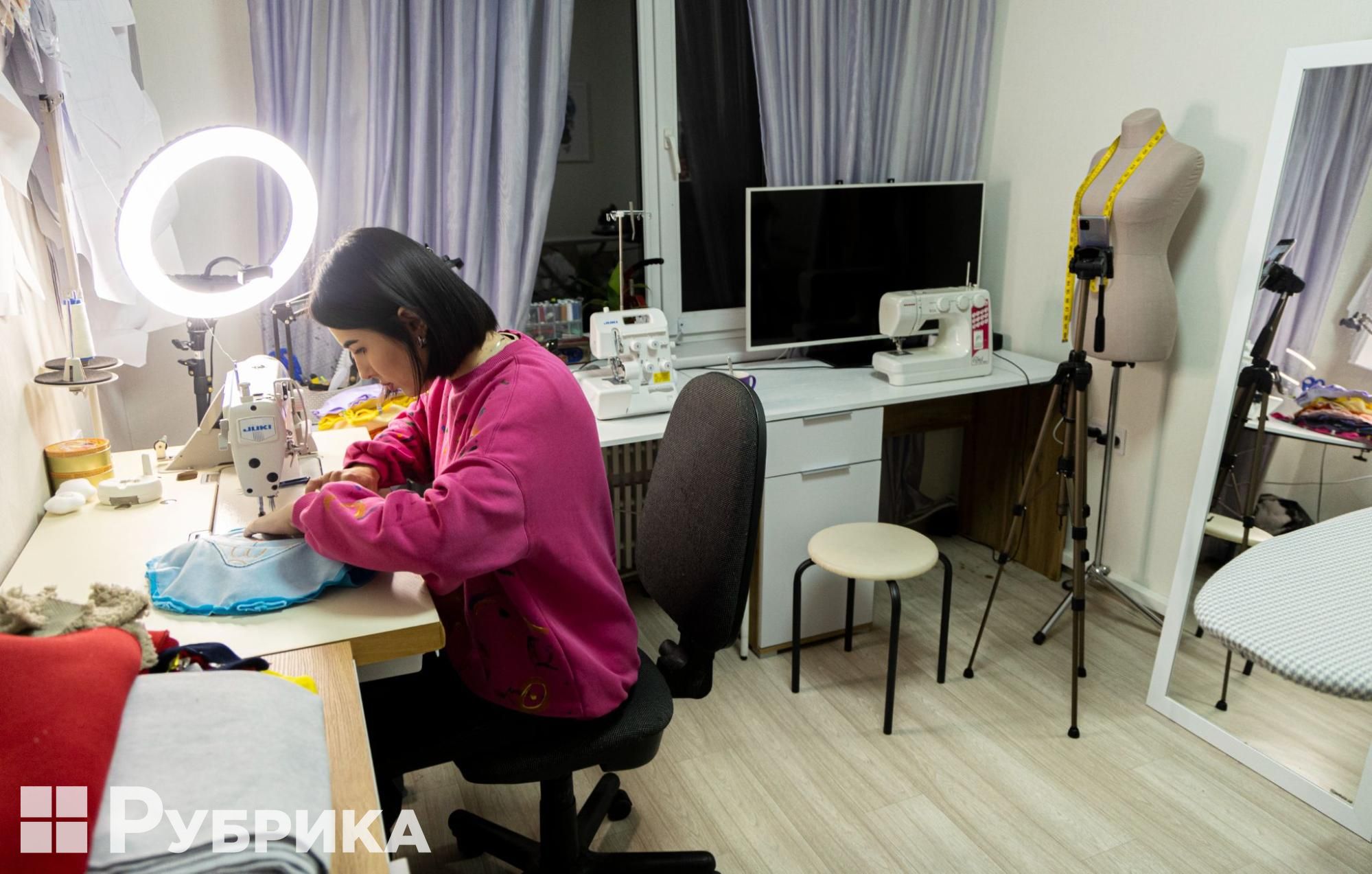
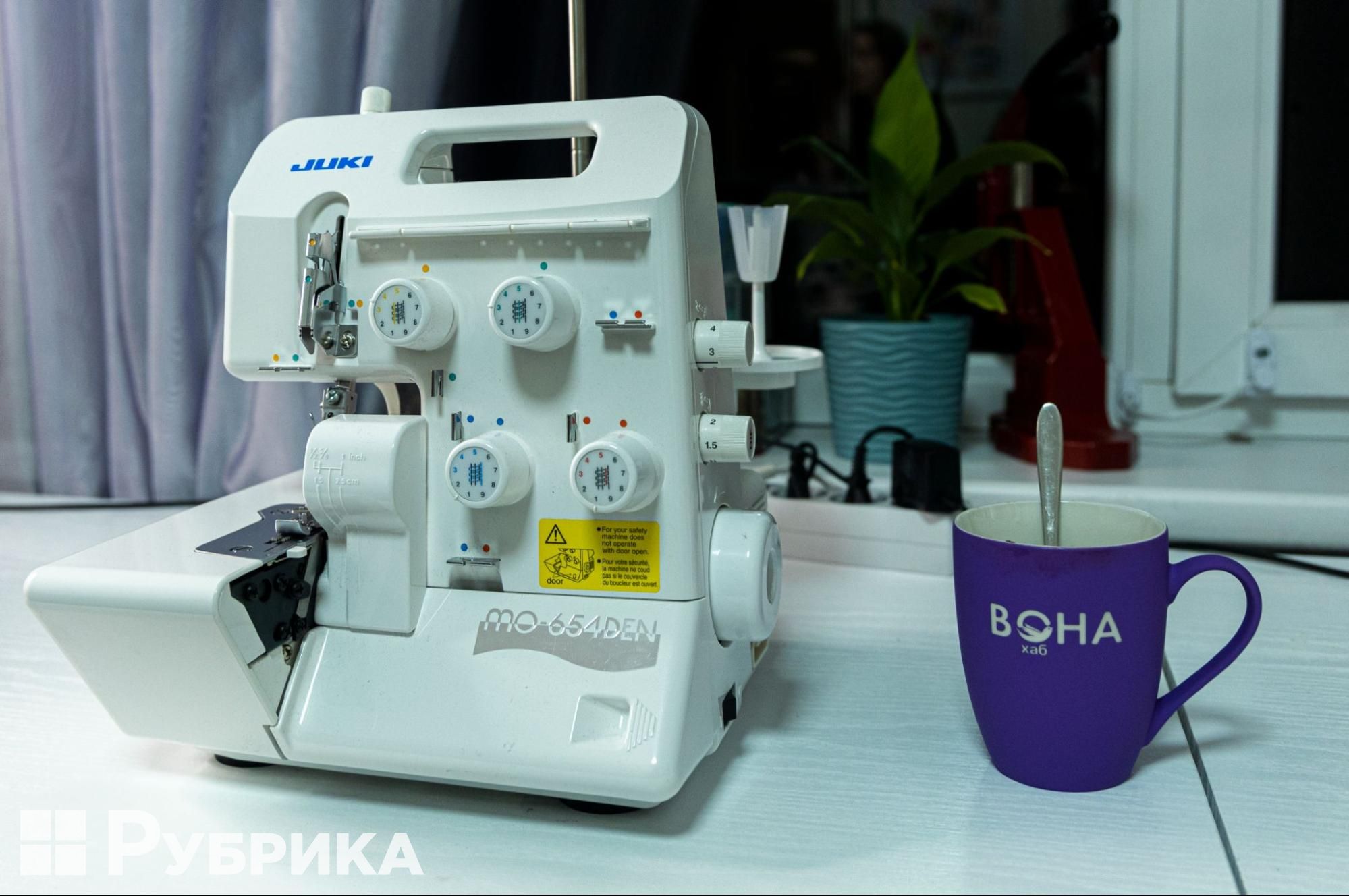
Hrabovenko at work. Photo: Rubryka
The entrepreneur shares that the new equipment has made the work much faster and more efficient. "When you sew on an old machine, it barely moves, like a tractor. The new one does everything quickly and qualitatively, making you simply enjoy your work."
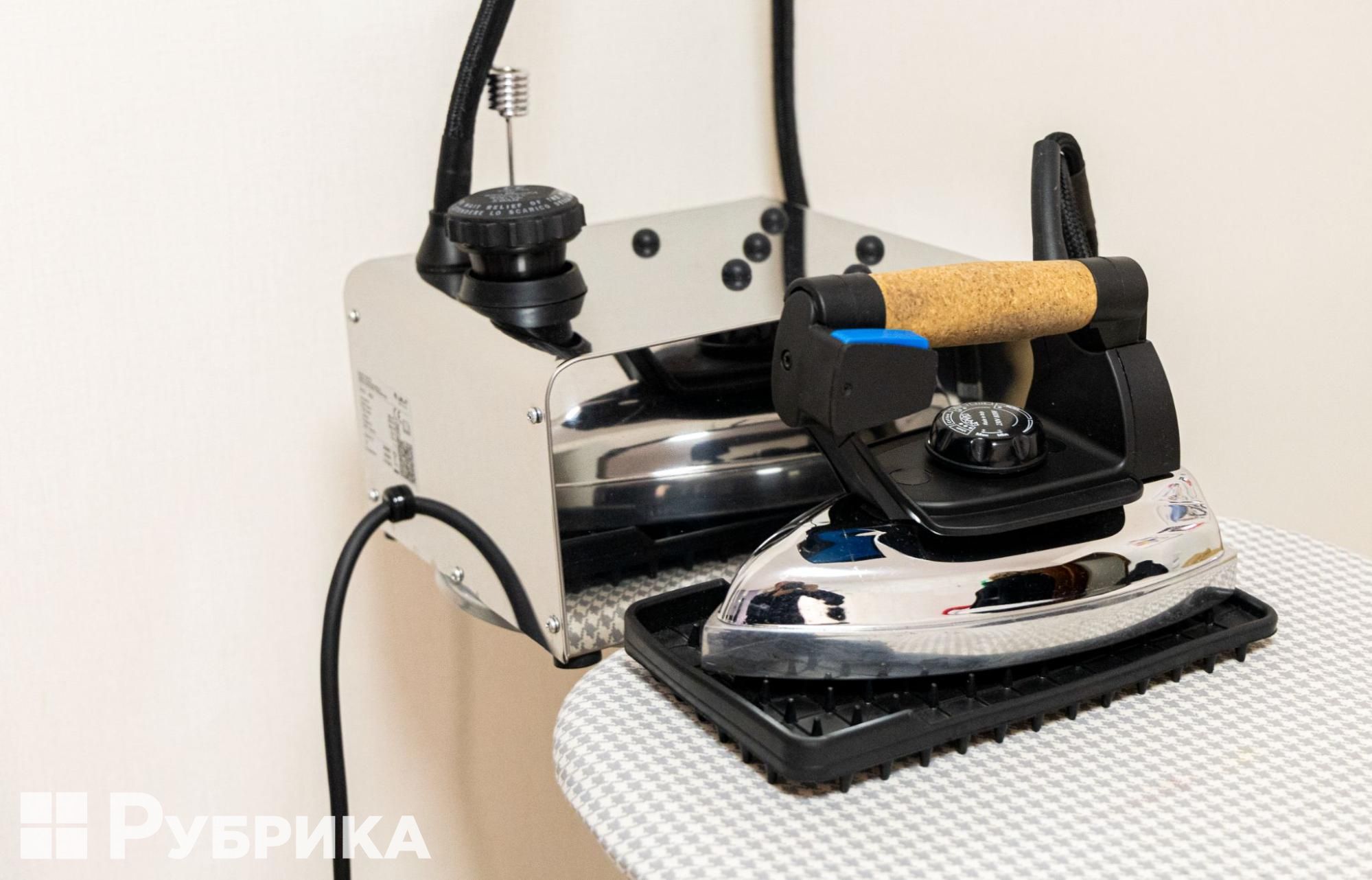
Hrabovenko's equipment. Photo: Rubryka
Finally, the entrepreneur tells a favorite story that motivates her to continue: "When the war started, my friends told me that they saw my toys at their friends' houses — they took them when evacuating," Hrabovenko continues. "I could not even think they were so valuable to people. Stories, smiles, joy, satisfaction are associated with them — these characters are loved."
"This is a new step, a completely different experience"
"We drove through the city, and it was completely empty. The street lights were turned off, and people darkened the windows so light did not penetrate them. In a nine-story building, only about twenty apartments shine. Gas stations are closed, pharmacies are closed, everything is closed," Larysa Polishchuk describes the city of Dobropillia, in the Donetsk region, after the start of a full-scale invasion.
She was born there and founded her own business. Polishchuk did not plan to evacuate even when most residents left. However, the need for medical help convinced her to pack her things, collect equipment from the enterprise, and leave for Lviv with her husband.
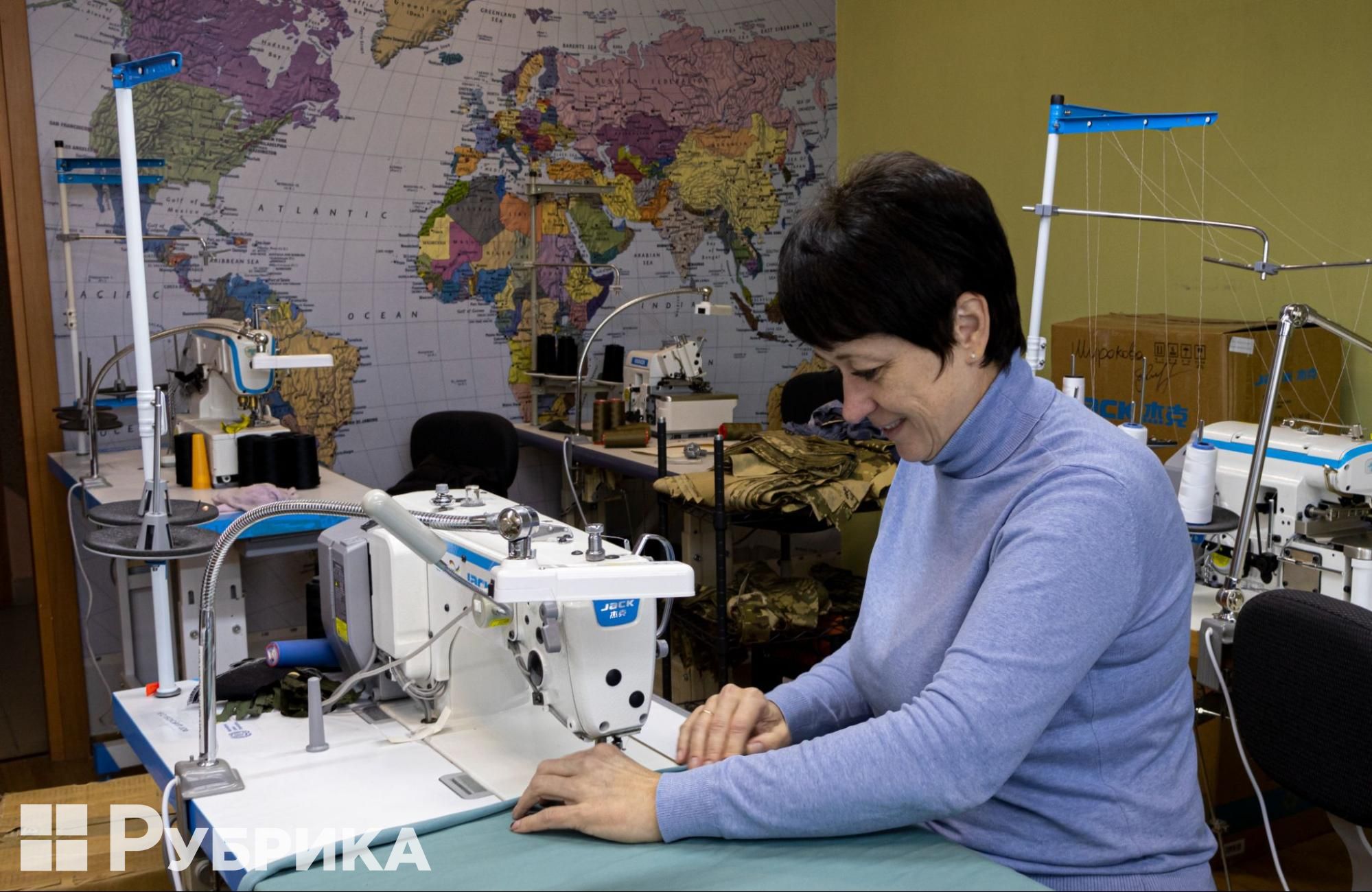
Larysa Polishchuk. Photo: Rubryka
Polishchuk started her business in the late 90s. She noticed the empty textile decor niche and decided to fill it. She learned everything from scratch, participated in exhibitions, built her small shop, and adjusted all processes.
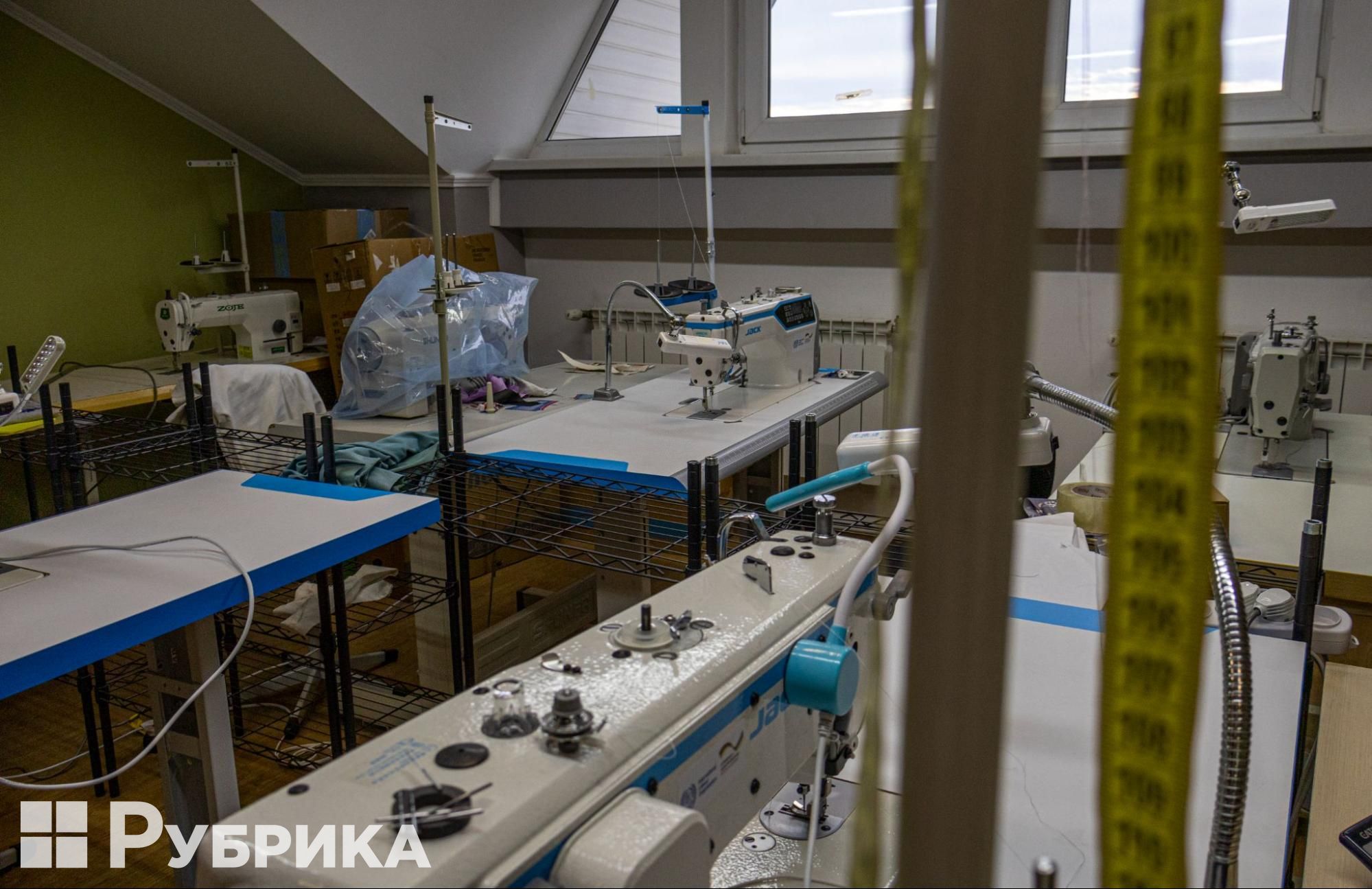
Polishchuk's workplace. Photo: Rubryka
"I have a small business, a team of three girls — two have worked with me for 15 years, and the other one for 13. We dressed windows and created beauty. Our products are in every kindergarten in Dobropillia and many music halls and hotels," shares the entrepreneur. In 2021, the enterprise was awarded the best enterprise in Ukraine in its region and field.
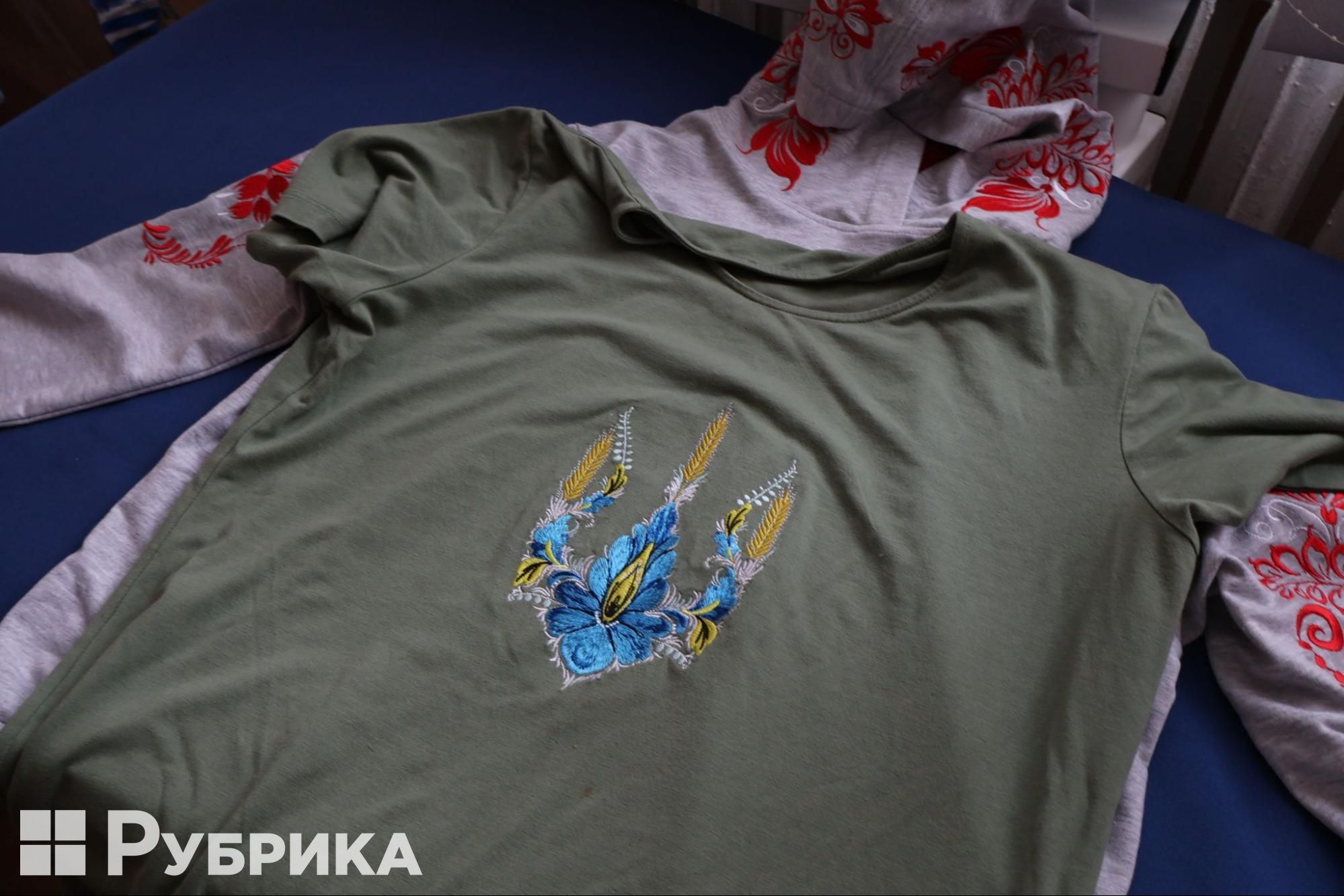
Examples of the embroidered design. Photo: Rubryka
Polishchuk says that she had so much experience that she and the seamstresses could choose the right length of curtains just by looking at the address where the clients lived. The houses in Dobropillia are almost all of the same type. The clients tell the district, and the team already understands what kind of building it is and the approximate height. "In a big city, all the houses are different, so it won't work like that anymore," Polishchuk shares.
The peculiarity of the business was that in the store, customers could touch everything themselves or, as the entrepreneur says, "feel."
When deliberating, customers could pay for a section from the window and try it at home. Then they return and pay the full price or get their money back.
However, in 2022, everything stopped. "We took out the equipment but had to leave some in the store. People came, took the curtains and said: 'I'm getting ready. If they kill me, then I will have something to bury me in.'"
After arriving in Lviv, Polishchuk did not have time to stop: she sewed uniforms for the Ukrainian army and organized training in sewing skills.
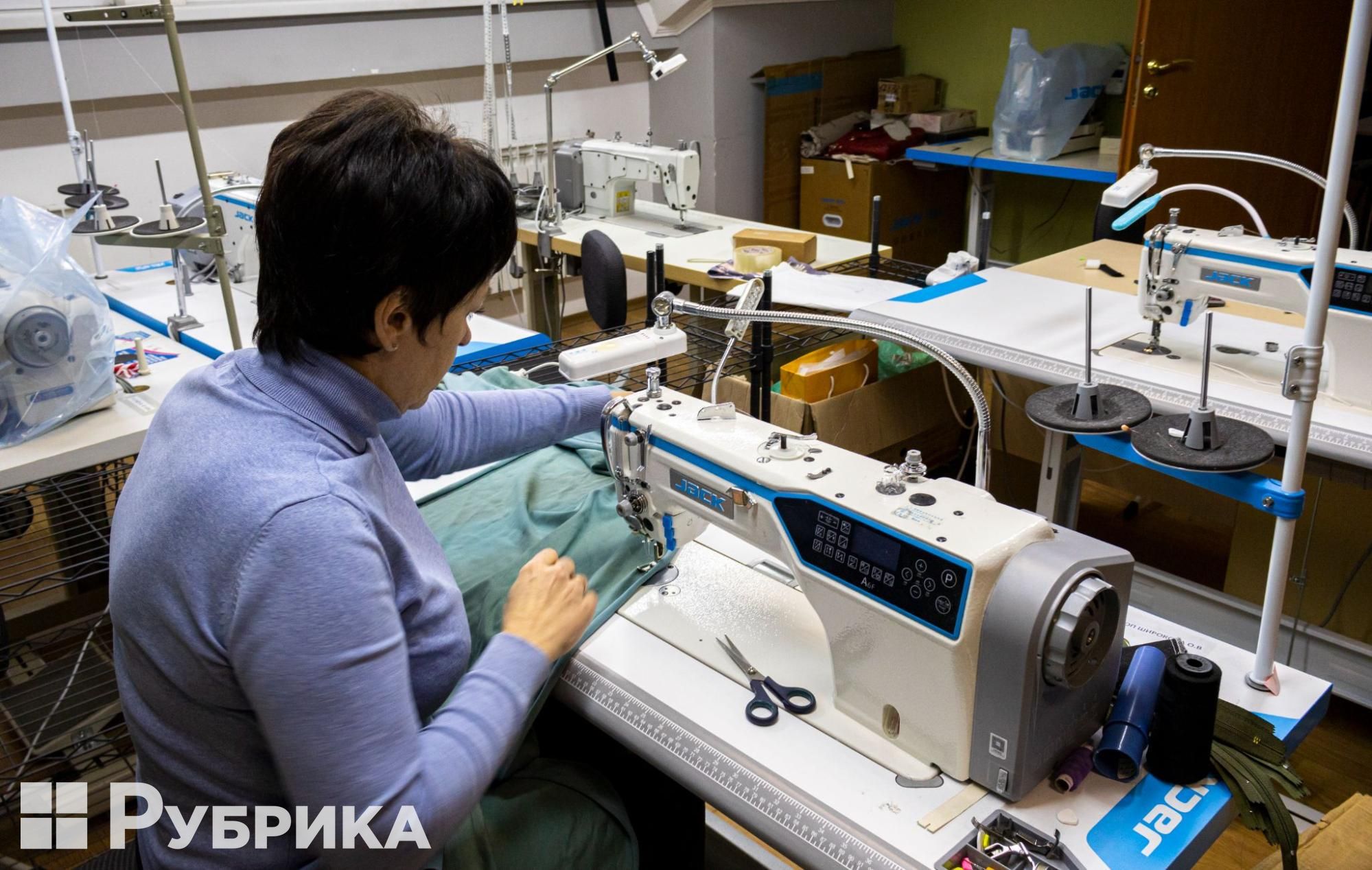
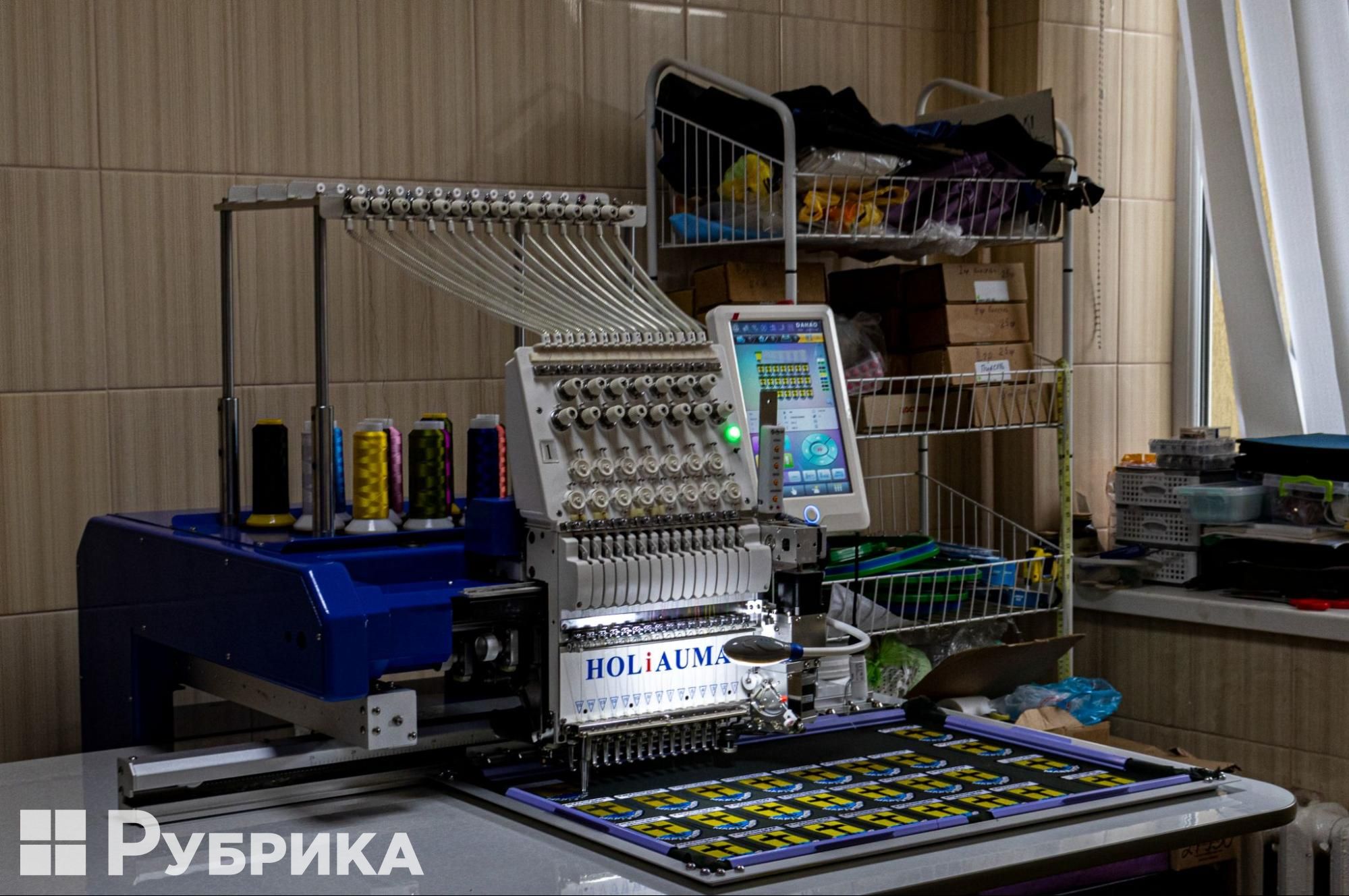
Polishchuk's sewing equipment. Photo: Rubryka
Polishchuk warmly talks about everyone who helped her along the way. VONA hub became one of the assistants.
"They constantly invited me somewhere and offered training and psychological support. With the support of the girls, I visited a Kyiv exhibition and represented them. This is a new step, a completely different experience. I have never been to exhibitions as a participant, and here, the VONA hub team offered me to go in the spring and present the designed costumes."
In addition to psychological support, a career counselor at the VONA hub supported the expansion of the assortment and the development of branding. According to Polishchuk, the value of the VONA hub in her life is because specialists help her with practical advice: "They don't say too much here, but all that you need to know and hear at this very moment. I don't know how they do it — when they speak, it is exactly what is needed," the entrepreneur is surprised.
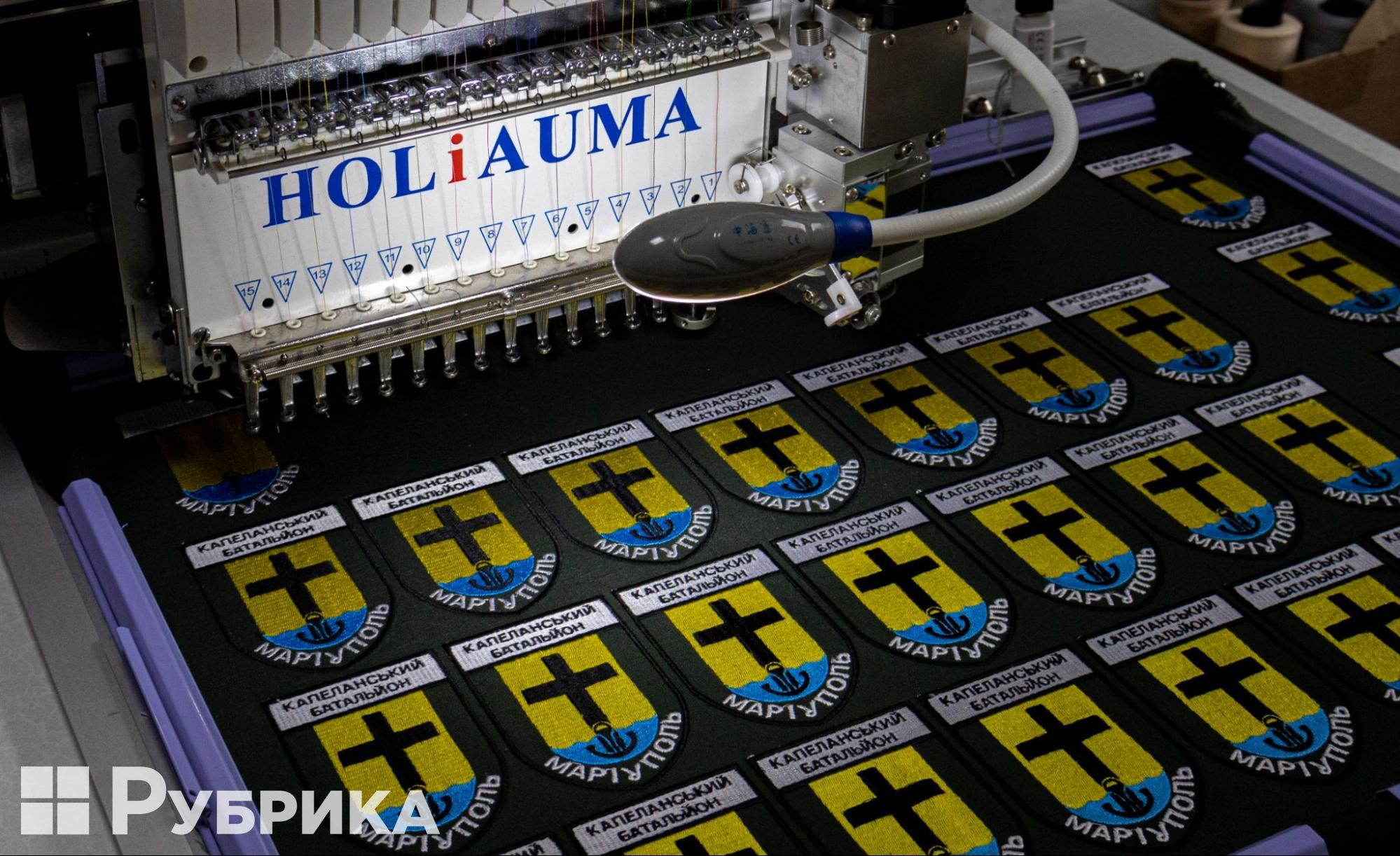
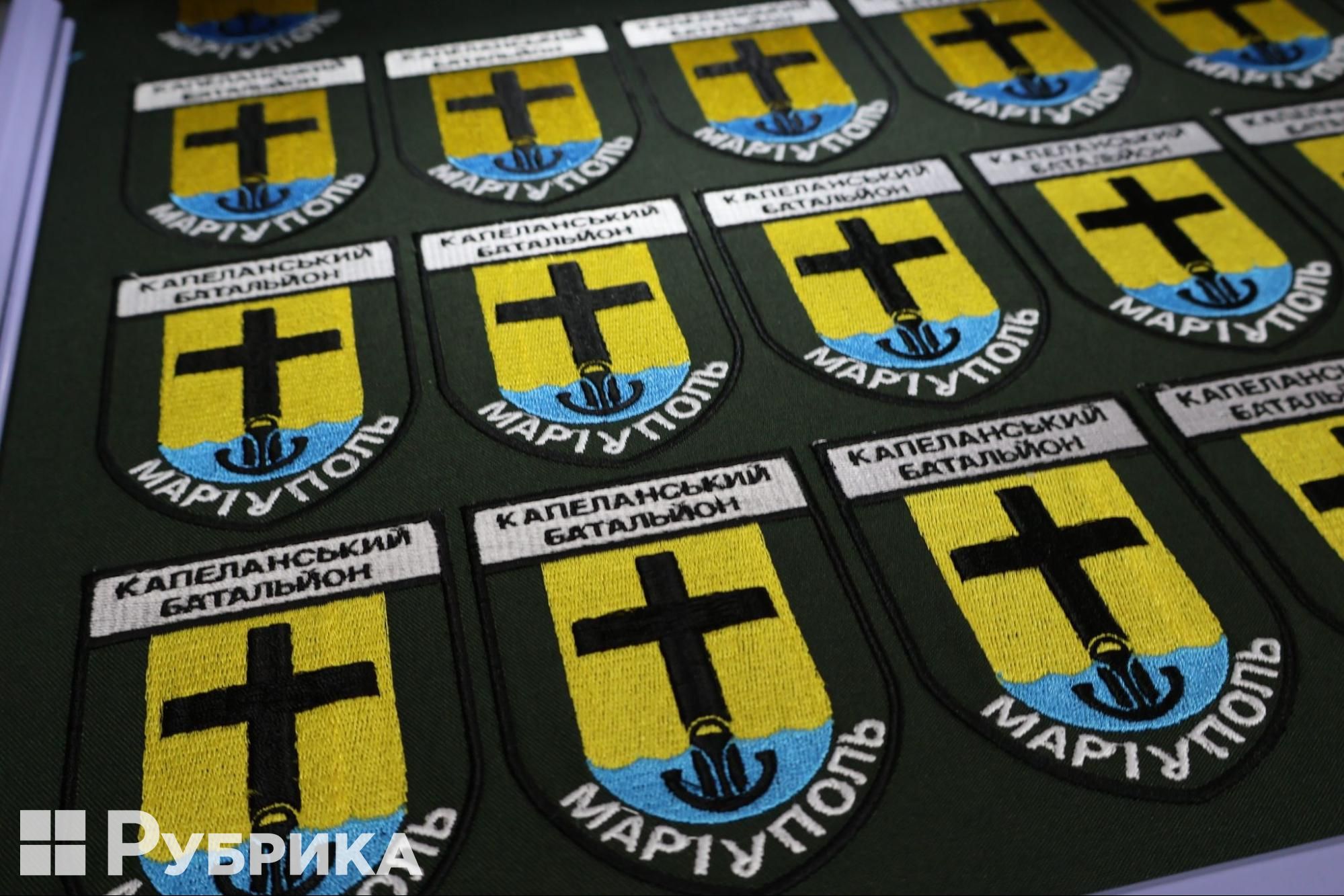
Polishchuk's works. Photo: Rubryka
Now, Polishchuk is creating a new collection of textiles. She went to train as a machine embroidery operator to improve her skills. The artist shares that the new place has a favorable environment for business and development, training, acquaintances, and initiatives: "There is huge support for women and business in the city. And not just to chat, but to help financially, with effective advice."
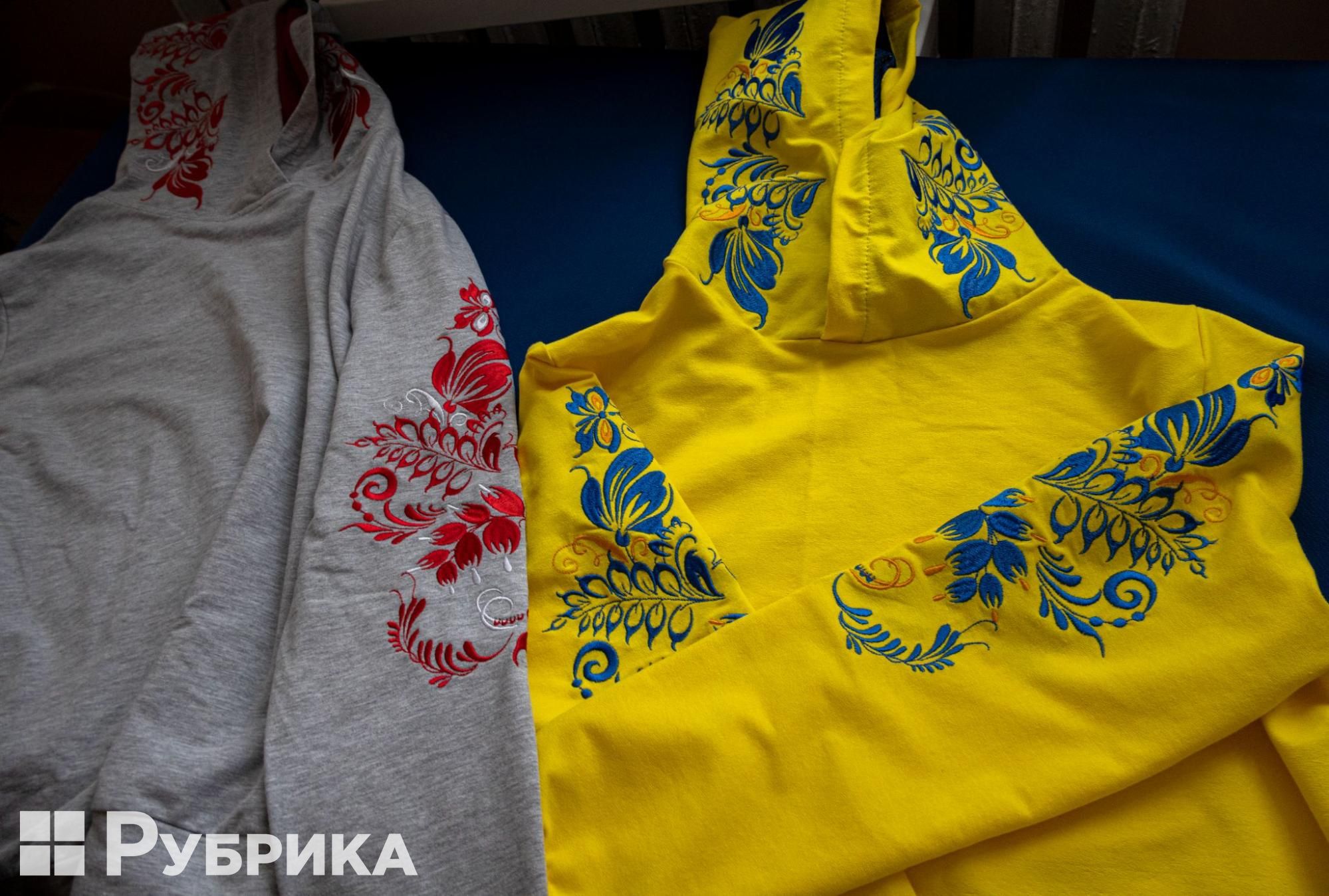
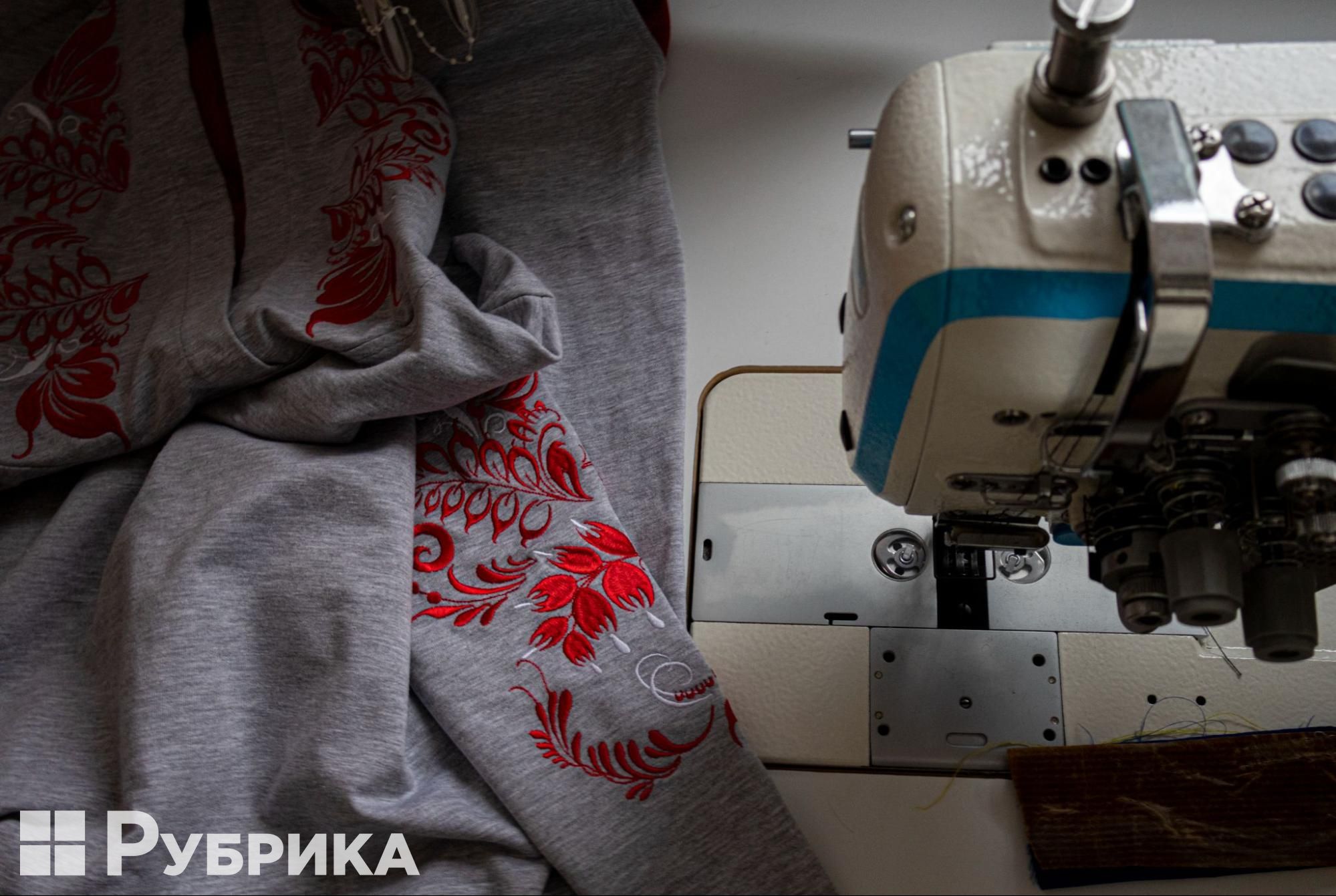
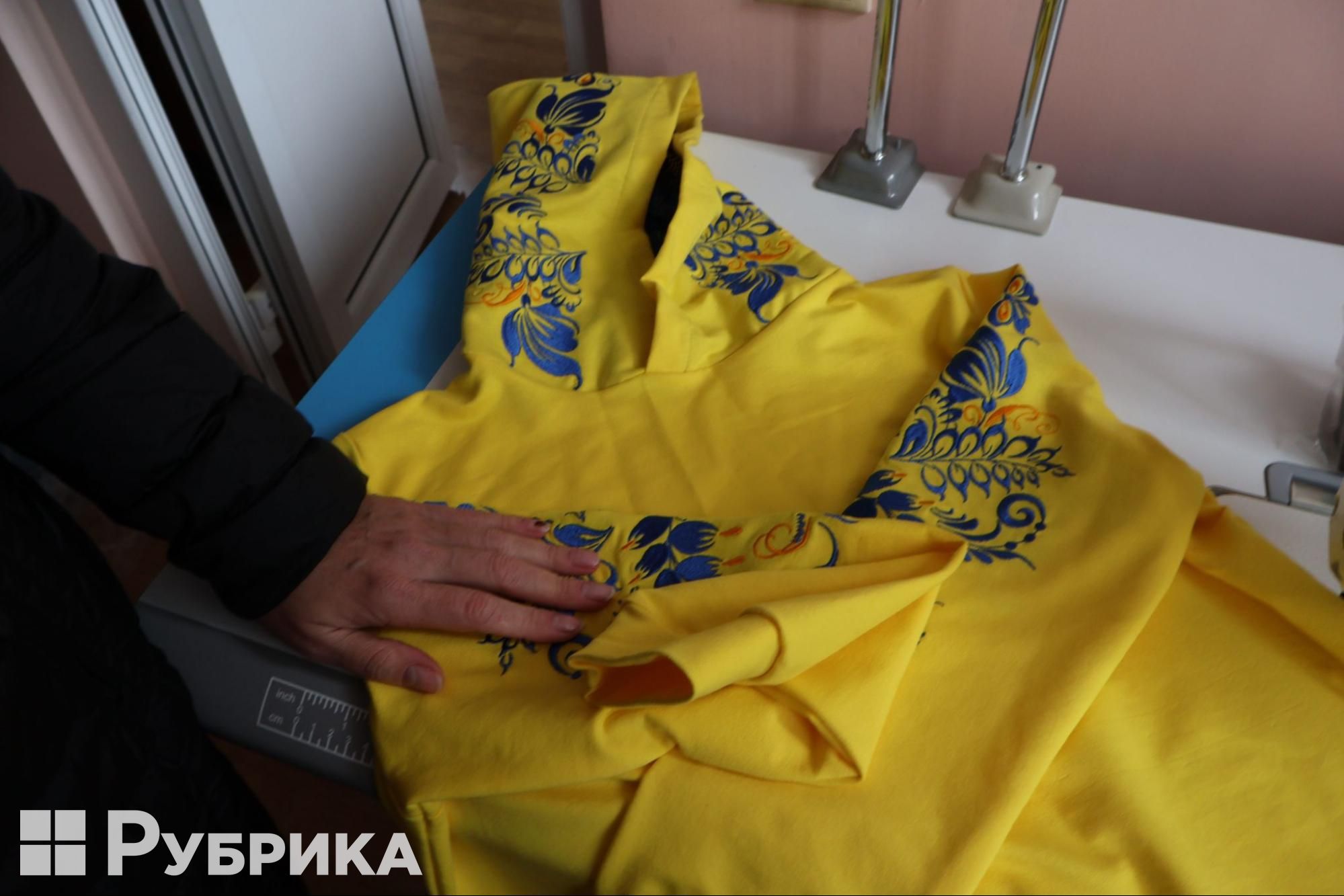
Suits sewn by Polishchuk. Photo: Rubryka
In November 2022, the entrepreneur partially restored the enterprise in Dobropillia.
"When my manager returned to Dobropillia, she surprised me that everyone was waiting for our opening," Polishchuk smiles.
The entrepreneur dreams of Ukraine's victory so she can return to her hometown and build a business there. In the meantime, she continues to work where she is.
"You can build a business anywhere"
When everyone around said that there might be a war, Olha did not believe it until the last moment, so she was not ready.
She remembers the first day of the full-scale invasion well — Olha met it in her native Zaporizhzhia. She woke up with unusual anxiety and went to the office.
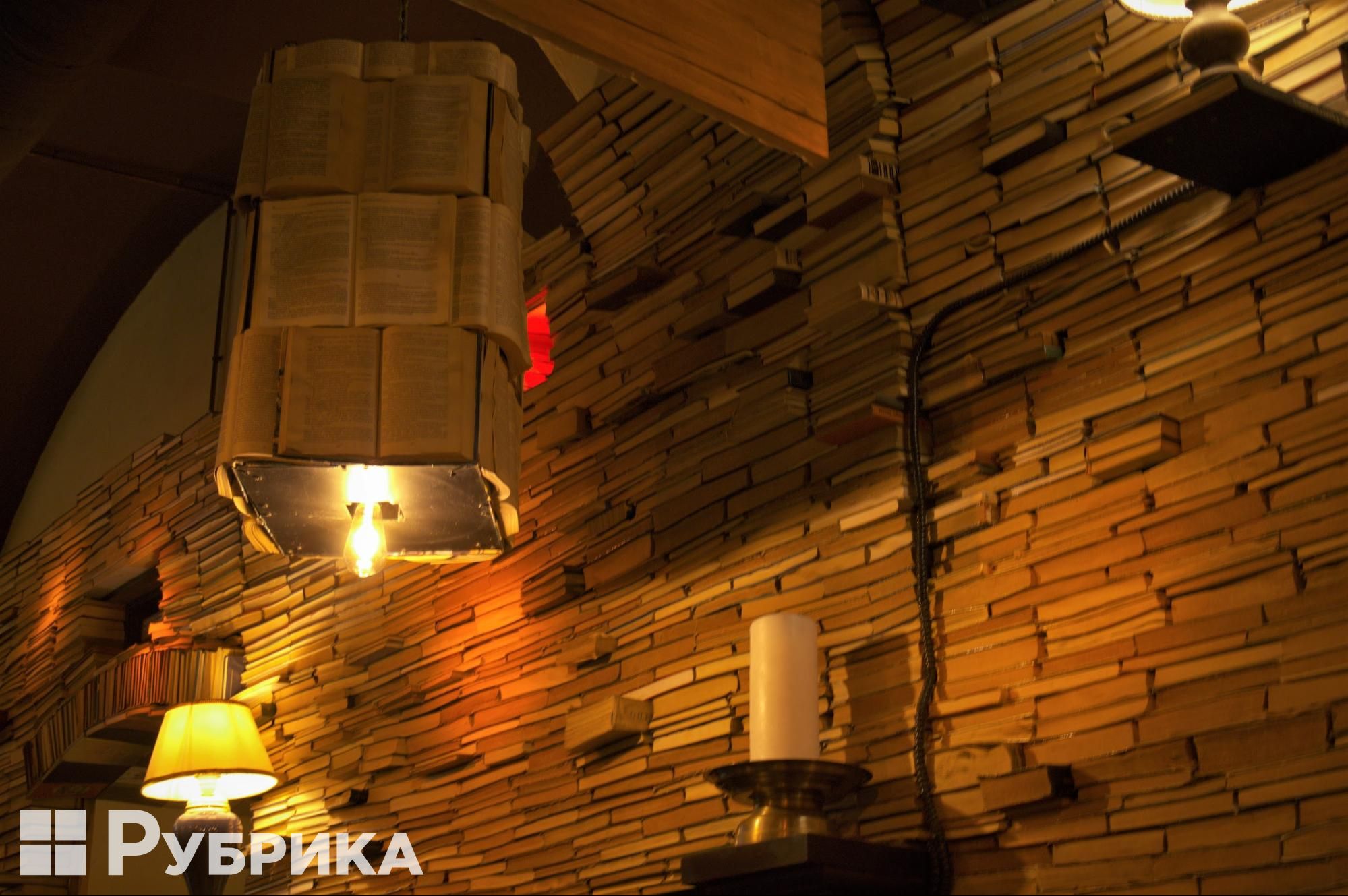
"We were finishing some work, listening to the state leadership saying that the war would last several weeks. I lived for these few weeks — I was not going to leave my native land," recalls Olha.
Several days passed like that, and then, at one point, Olha's husband decided to evacuate the family. Olha and her children went to bed with the understanding that they were leaving their native Zaporizhzhia the next day.
"I still can't watch war movies where the crowd pulls people away because that's how the crowd pulled my husband away. When my husband and his dad, who had undergone a difficult major operation, tried to transfer my child to me on the evacuation train, the crowd simply pushed him inside. It was no longer possible to get off the train," Olha recalls their evacuation and last moments in Zaporizhzhia.
When the family came to Lviv, Olha believed it would be short-lived — for a month or two. The words of a good colleague stuck in her head: "You should pull yourself together and not lose your temper. You just don't have the right to waste your time. You have to live today and now."
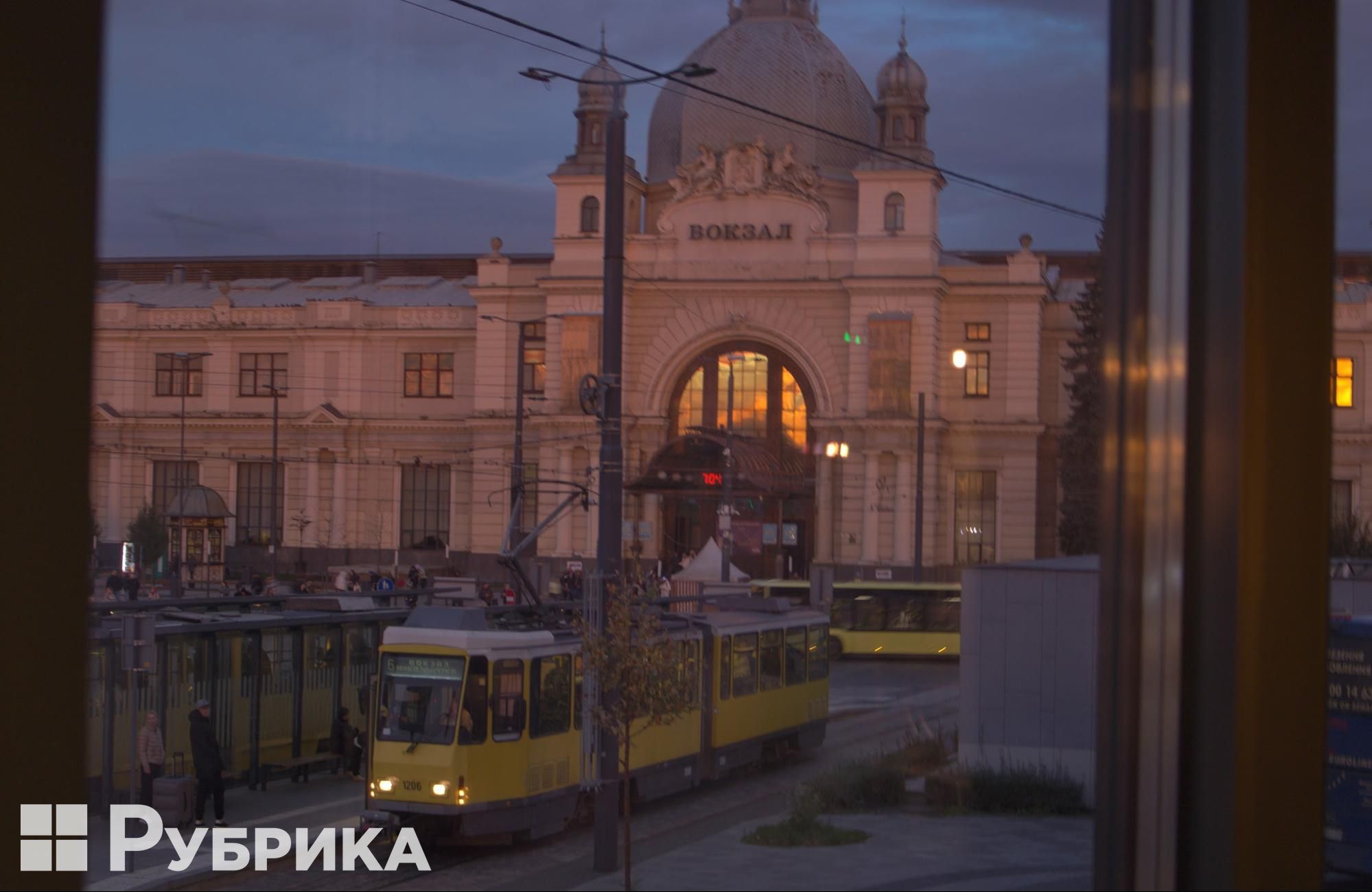
Lviv railway station where Olha arrived with her family after evacuating from her hometown.
"I remember her words very well, but a different story happened to me — I fell into a stupor and was very confused and depressed. Some works and contracts started before the war, and it was necessary to finish everything to close these acts. We didn't know how the economy would work. You were just living on a powder keg. Everything changed," the entrepreneur recalls.
Before the war, Olha worked in consulting — the war in Ukraine brought silence to this field. In addition, the entrepreneur and her father had a family business that had to be put on hold. All this, together with the sudden evacuation, the feeling of changeability and instability, and anxiety, forced Olha to experience a certain internal struggle. However, she did not give up — she volunteered and thought about what to do next.
Olha found the answer herself — soon, her husband got to know Katya and Yana, specialists from the VONA hub. Olha also visited the hub, got to know other entrepreneurs, and recharged herself with energy: "I met Katya and Yana there. It was a breath of fresh air for me. Katya is very energetic — she will do anything. She doesn't even think that something might not work out. Yana is from my region. The girls are always in touch and are interested in how I am doing. When I talk about my goals and their realization, they are happier than I am."
With the help of the VONA hub, Olha got the opportunity to take several courses that she needed to return to running her own business. Among them, for example, the Biotechnologies course on the basis of the Lviv Polytechnic. It is essential for the realization of Olha's dream because she works in the field of certification, where it is vital to know the technical regulations. She says that she underwent various trainings to gain new skills and not to miss opportunities: "You can't go to a client with a lower level than theirs, so you should always be one step ahead."
After many trainings, reflections, and reliable support from the family and experts of the hub, Olha realized that it was time to act because the most valuable thing she had right now was time.
The entrepreneur says she remembered how difficult it was to start her first business: how scary it is to recruit the first clients, how sometimes you don't understand the processes, and where to get contract templates. She learned step by step from her mistakes.
"Now I know for sure that there is no need to be afraid — it is necessary to start and do because no one starts as a professional in any field. You can never foresee absolutely all the risks. At first, you are very unsure, but once you start doing it, you simply have no choice. You have to cope. It is difficult; it is a struggle, first of all, with oneself," says the entrepreneur.
Olha opened a private enterprise, advises clients on business and management issues, is receiving a fourth higher education, and is gradually moving towards the realization of all her dreams: "I am now using the skills I acquired at the VONA Hub courses. For example, we studied all the possibilities of Google products, particularly Google Sheets. In this regard, my work is now much fresher and more interesting for clients."
Olha believes that you should not wait for better times. You need to act now: "You can build a business anywhere, and it doesn't matter what city it is. You will always be able to return home when it is safe to do so. There is no need to hibernate because life will pass by, and no one will return that time to us."
#WomenInsoire is a campaign about women's positive role in the success of Ukraine's reconstruction: in infrastructural, economic, and social recovery.
Equal representation of women at the stages of planning and implementation of reconstruction will speed up this process and make it more inclusive and thoughtful.
Join the recovery! Help Ukraine realize its potential!
The VONA career and business hub is implemented by UNFPA, the United Nations Population Fund in Ukraine, with the financial support of the British government. The material was created with the support of the project.


Microgreens and long-term storage meals: displaced entrepreneur building a business amid war

Starting over, but not from scratch: IDP develops plus-size clothing business

"It is unbearably difficult to do alone what used to be done together": stories of businesswomen whose loved ones died at the front
Newsletter
Digest of the most interesting news: just about the main thing



